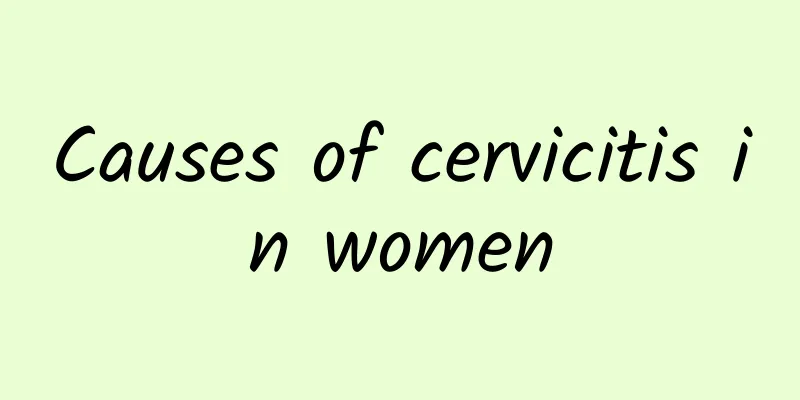What are the 6 symptoms of uterine fibroids? What are the symptoms of uterine fibroids?

|
What are the 6 symptoms of uterine fibroids? What are the symptoms of uterine fibroids? Uterine fibroids are a common gynecological disease and one of the most common benign tumors in the female reproductive system. They usually grow on the wall of the uterus and are round or oval in shape. They can be single or multiple. Below we will introduce the 6 common symptoms of uterine fibroids in detail. 1. Irregular menstruation: The growth of uterine fibroids can interfere with the normal shedding and regeneration of the endometrium, leading to increased menstrual flow, prolonged menstruation, and irregular menstrual cycles. Some women may experience intermittent labor pains or menstrual pain. 2. Pelvic pain: The pressure caused by the location of uterine fibroids between the endometrium and the periuterine lining can cause pelvic pain, especially during menstruation. The degree and duration of pain will vary depending on the size and location of the fibroids. 3. Abdominal mass: The growth of uterine fibroids can lead to the formation of abdominal masses. When you touch the abdomen, you may feel a solid mass, and sometimes you can even touch the edge of the fibroids. 4. Frequent and urgent urination: When uterine fibroids press on the bladder, you may feel frequent and urgent urination. Sometimes you may need to urinate frequently, even if you only excrete a small amount of urine. 5. Compression symptoms: When uterine fibroids grow larger and get close to other organs, they may compress the surrounding organs, causing discomfort and pain. For example, uterine fibroids may compress the rectum, causing constipation, or compress the bladder and rectum, causing urination problems. 6. Infertility or miscarriage: In some cases, uterine fibroids may interfere with the implantation process of the fertilized egg, leading to infertility. They may also increase the risk of early miscarriage and abnormal placental position, affecting pregnancy. These symptoms will vary depending on the size, number, and location of the uterine fibroids. Some women may only have mild symptoms, while others may have more severe symptoms. Therefore, if you find yourself experiencing the above symptoms, it is recommended to see a doctor in time and undergo a gynecological examination. Popular science about "What are the 6 symptoms of uterine fibroids": Uterine fibroids are one of the most common benign tumors in women, but not all of them require treatment. If you are diagnosed with uterine fibroids and have no obvious symptoms, your doctor may recommend regular observation to ensure that the fibroids do not grow or cause new problems. However, if the symptoms are severe, surgical treatment may be required. There are several surgical methods for treating uterine fibroids, including hysterectomy and myomectomy. The decision on which surgical method to use depends on the size, number, and location of the fibroids and whether the woman still wants to retain her fertility. In normal times, women should maintain good living habits, including a balanced diet, adequate exercise and stress reduction, to maintain good uterine health. In addition, regular gynecological examinations are also an important means of preventing and timely detecting uterine fibroids. The six common symptoms of uterine fibroids include irregular menstruation, pelvic pain, abdominal mass, frequent and urgent urination, compression symptoms, and infertility or miscarriage. If you experience these symptoms, you should see a doctor and receive a gynecological examination as soon as possible. Timely detection and treatment of uterine fibroids is very important for women's health. |
<<: Why do uterine fibroids grow so fast? What are the symptoms of large uterine fibroids?
>>: What is the name of the disease? What is the name of the disease?
Recommend
How to prevent and treat irregular menstruation?
From the beginning of menarche, you should learn ...
What are the specific hazards of cervical erosion?
What are the hazards of cervical erosion? In fact...
What are the symptoms of left adnexitis?
The reason why we recommend that you first unders...
Women should know about these painless abortion care
There are many ways to have an abortion, among wh...
How can girls relieve dysmenorrhea in winter? What are the methods to relieve dysmenorrhea?
For many women, the freezing winter is not only a...
Paying attention to sexual hygiene can prevent cervical erosion
Cervical erosion is a common chronic gynecologica...
Follow these 3 methods to significantly reduce uterine cold
Palace cold is a symptom that troubles many women...
Can drinking hot lemon water help detox? Nutritionists reveal the truth behind 10 health myths
What health decisions have you made recently? Giv...
9 benefits of sweet potatoes: weight loss, lowering blood pressure, and stabilizing blood sugar! 5 ways to eat sweet potatoes for weight loss and 3 taboos
Sweet potato is a starchy whole grain ingredient ...
Cervical fibroids are a special type of uterine fibroids
Many women panic and don't know what to do af...
Does uterine fluid accumulation affect pregnancy?
Does uterine effusion affect pregnancy? This is a...
What to do if your menstruation is irregular after weaning
What should I do if my menstruation becomes irreg...
How big is the surgery for ovarian chocolate cyst?
How serious is the surgery for ovarian chocolate ...
Clinical manifestations of menopausal dysfunctional uterine bleeding
After women enter menopause, their ovarian functi...
Does smoking cause ovarian cysts?
Does smoking cause ovarian cysts? Smoking is harm...









